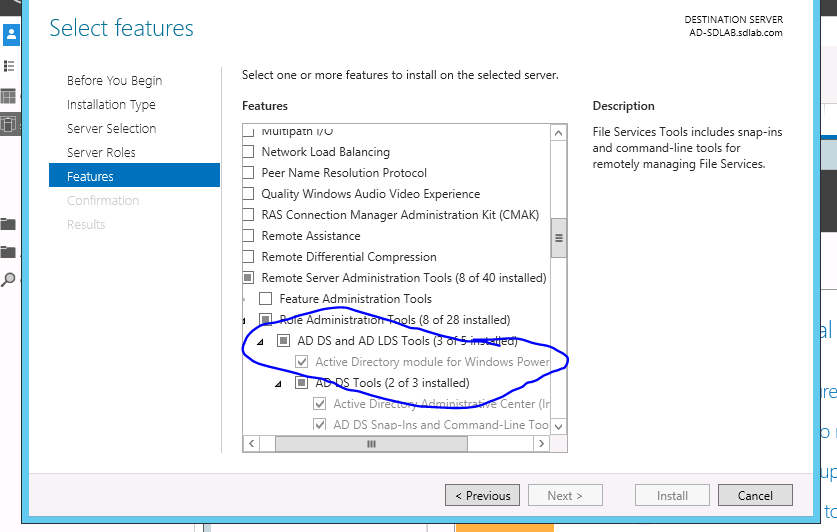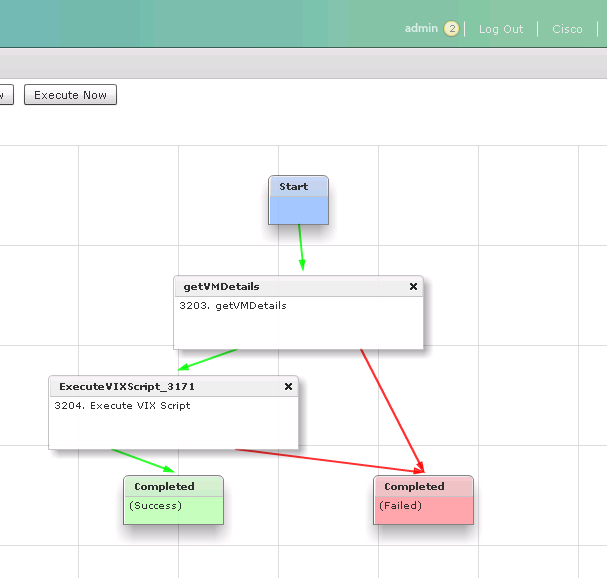| Task Name | Power Shell example on moving a VM to a different OU |
| Description | - Change the user of a running workflow
|
| Prerequisites | - Tested on 5.3.1
|
| Category | Workflow |
| Components | vSphere 5.x |
| User Inputs | - userid to change to
|
| Output | |
Instructions for Regular Workflow Use:
- Download the attached .ZIP file below to your computer. *Remember the location of the saved file on your computer.
- Unzip the file on your computer. Should end up with a .WFD file.
- Log in to UCS Director as a user that has "system-admin" privileges.
- Navigate to "Policies-->Orchestration" and click on "Import".
- Click "Browse" and navigate to the location on your computer where the .WFD file resides. Choose the .WFD file and click "Open".
- Click "Upload" and then "OK" once the file upload is completed. Then click "Next".
- Click the "Select" button next to "Import Workflows". Click the "Check All" button to check all checkboxes and then the "Select" button.
- Click "Submit".
- A new folder should appear in "Policies-->Orchestration" that contains the imported workflow. You will now need to update the included tasks with information about the specific environment.
Attached is a workflow, Powershell Script and bat file which allows ability to move a VM from the base Computer group in AD to any OU. When are VM is added to the domain it goes into a default group and OU and this workflow will move it to one called Dev. The powershell script can be changed to reference any OU or even variablized to allow OU to be passed as a workflow paramenter
Workflow and Script have been tested with UCSD 5.3.0.0 and Powershell and WIndows 2012 R2 Standard edition
Requires the following feature install where the Powershell Script is ran.

The bat file acts as a wrapper so the Powershell Agent is not requires. This bat file is reference in the Workflow to execute the Powershell Script.
Below is the powershell script
$hostname = $args[0]
Import-Module activedirectory
Get-ADComputer $hostname | Move-ADObject -TargetPath "ou=marks,dc=sdlab,dc=com" >> c:\mvoups.log
C:\Windows\System32\WindowsPowerShell\v1.0\Powershell.exe -executionpolicy remotesigned -File C:\mvou.ps1 %1 >> c:\mvou.log
